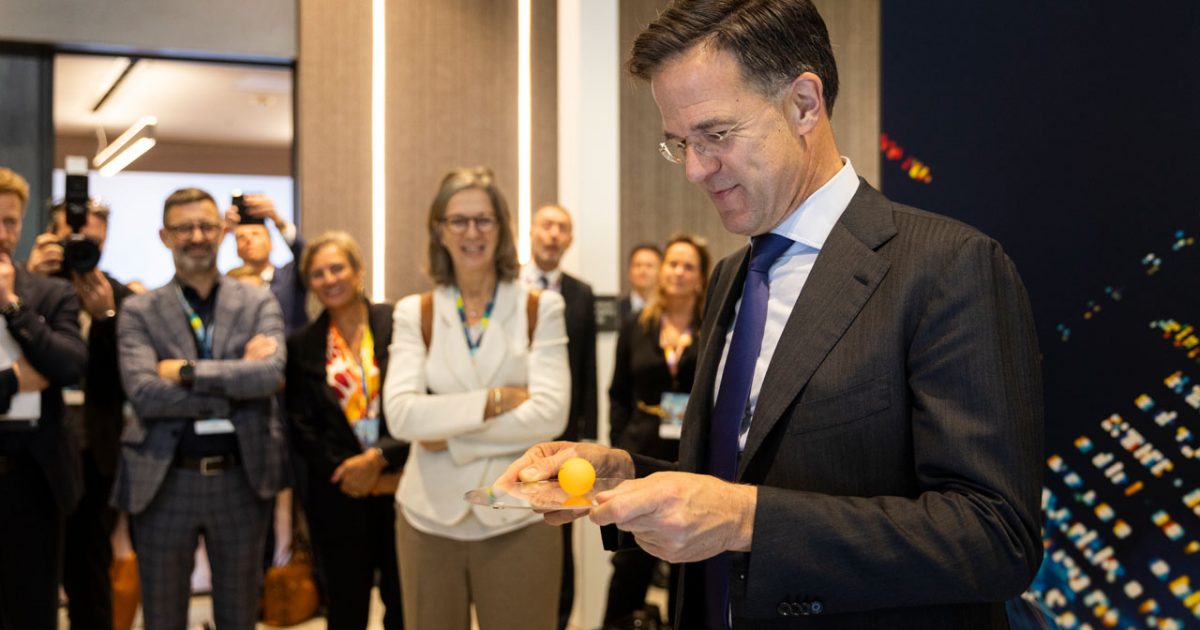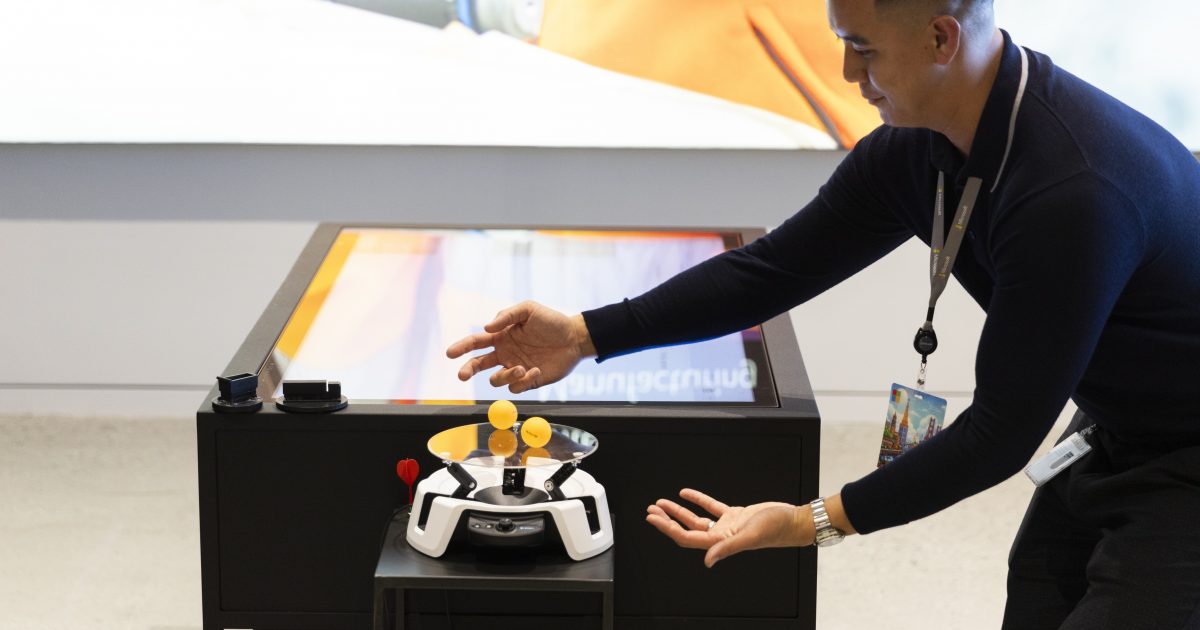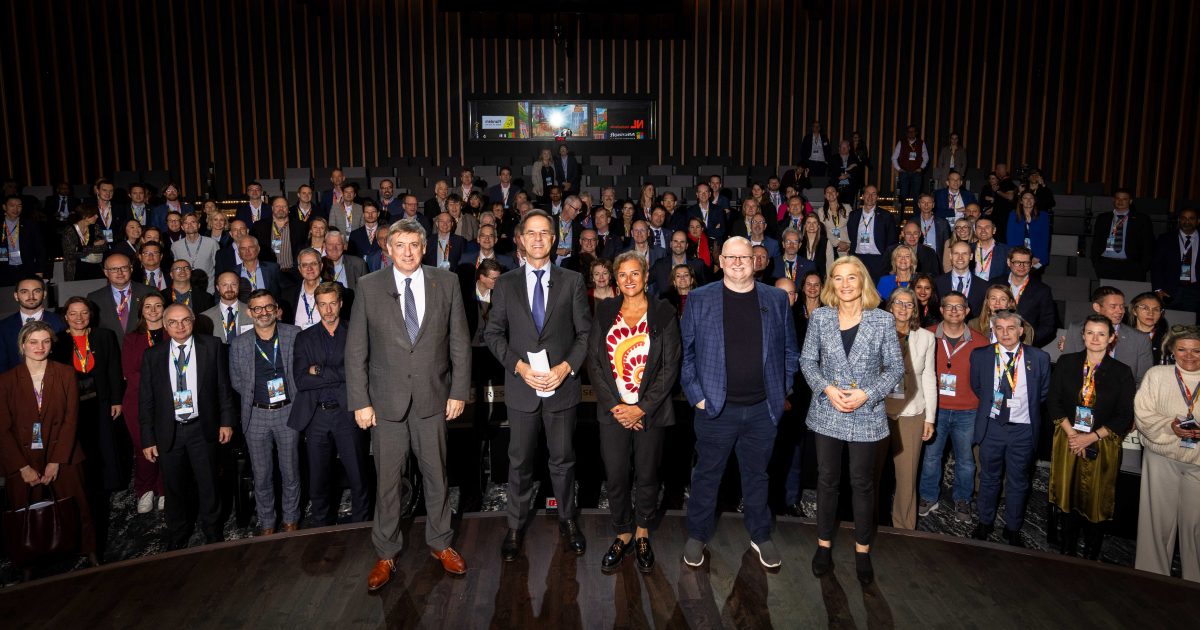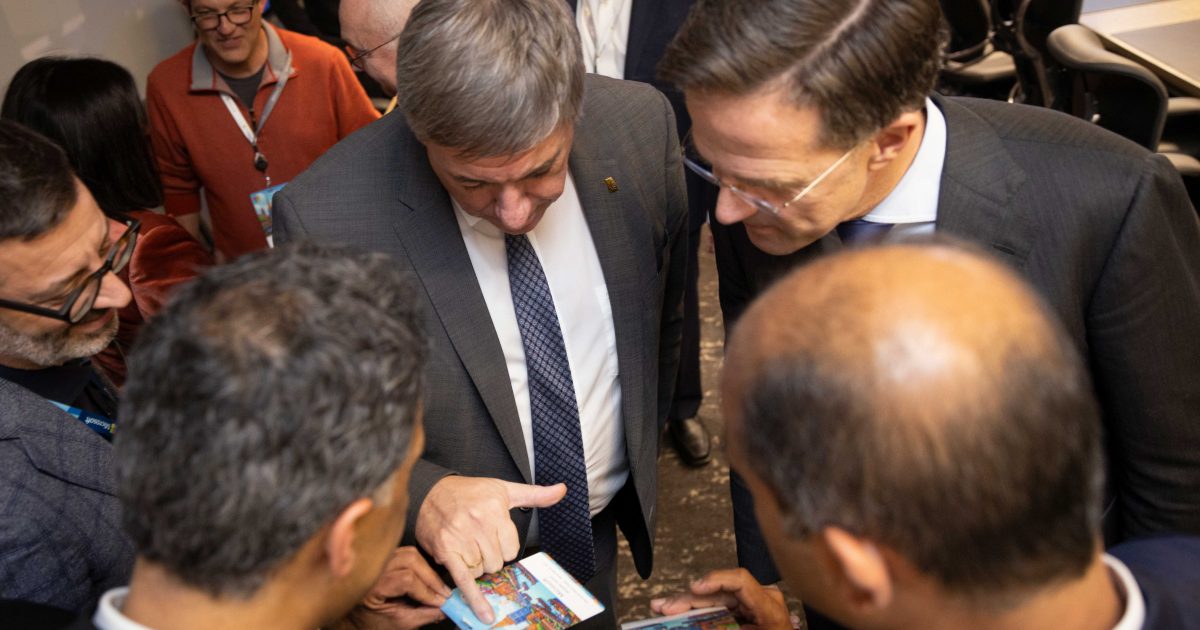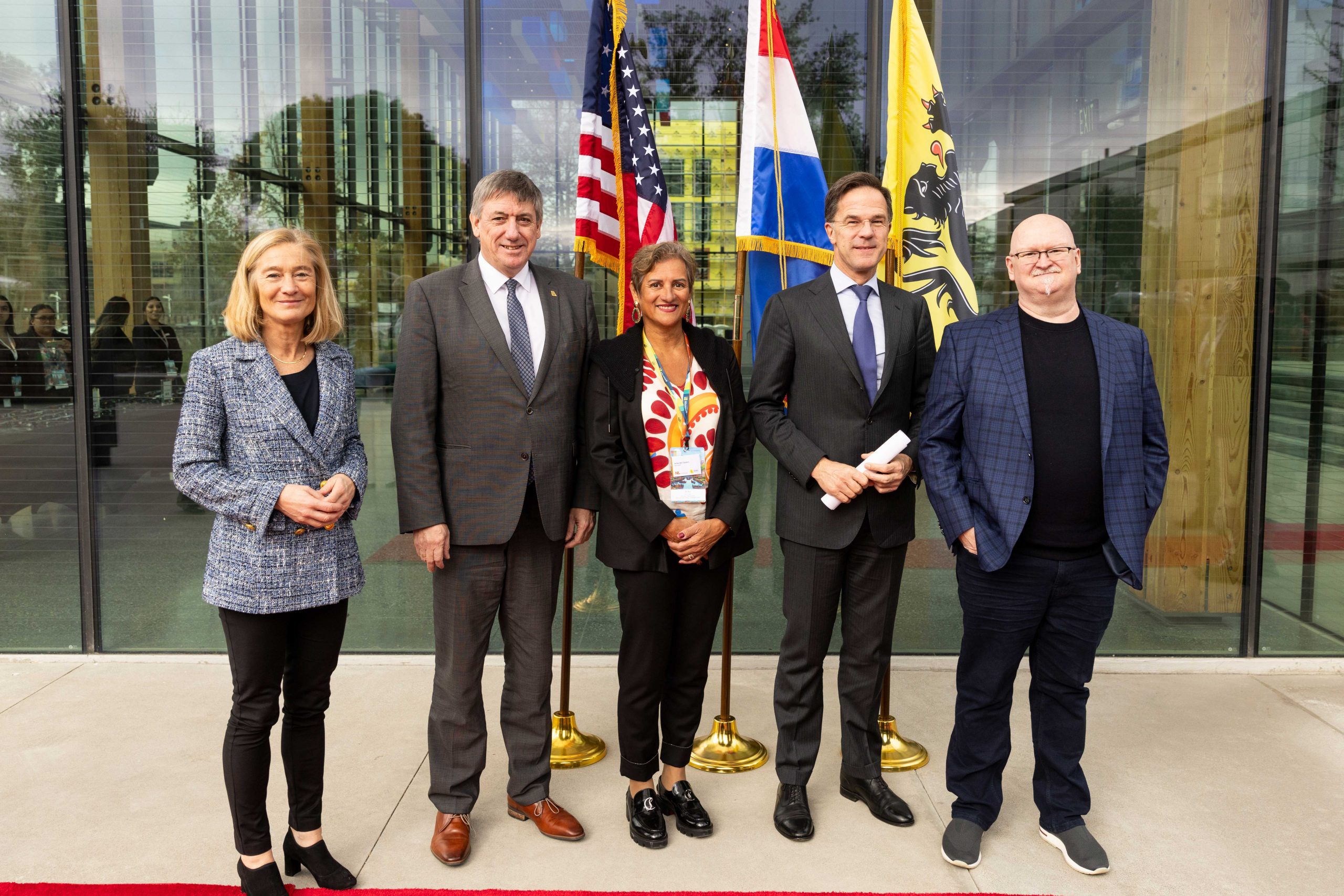
Microsoft Bay Area was honored to welcome Prime Minister of the Netherlands Mark Rutte and Minister-President of Flanders (Belgium) Jan Jambon, along with an economic delegation of top executives and researchers, for a thought-provoking exploration of semiconductor technology, quantum computing, and generative AI.
The December visit began with a red-carpet welcome and included a fireside chat, moderated by Microsoft Netherlands Area Vice President Anke den Ouden, with Microsoft Chief Technology Officer and Executive Vice President of AI Kevin Scott, Prime Minister Rutte, and Minister-President Jambon.
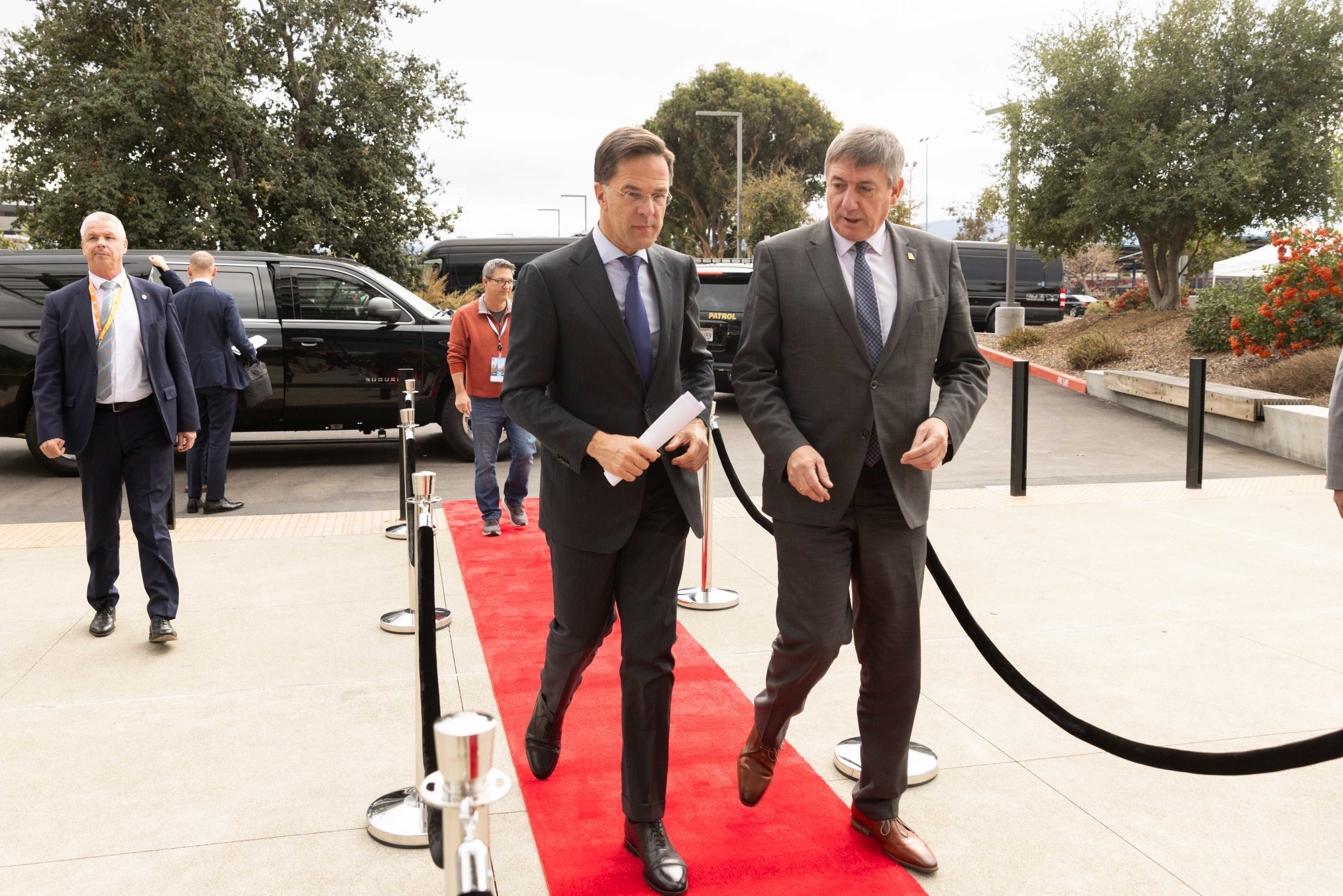
Den Ouden said it was an ideal setting for such a gathering because Microsoft’s Silicon Valley Campus is the company’s most sustainable in the world, powered with solar energy and equipped with a landscaped roof designed to cool the building in the summer. And Silicon Valley, epicenter of innovation since the beginning of the computing age, was a perfect spot for a conversation about the technological breakthroughs of generative AI.
Kevin Scott shared with Prime Minister Rutte and Minister-President Jambon his excitement about these advances.
“We’re right now in one of the most exciting moments in the history of invention,” he said. “In my career as a technologist, there hasn’t been a moment quite like this, where we’re inventing a set of things at a prodigious pace that have the opportunity, if we choose to use them in the right way, to really transform how society works for the good.”
Scott emphasized that generative AI promises to create the boost in productivity needed to address major societal challenges that the world faces right now, and he said the technological and research expertise in the Netherlands and the Flanders region of Belgium will be key to driving this innovation in coming years. Major semiconductor industry companies based in the Netherlands and Flanders, including ASML, imec, and NXP Semiconductors, will help develop the substantial computing power needed to run the large language models that underpin generative AI technology.
Prime Minister Rutte and Minister-President Jambon agreed that this era presents significant opportunities and new considerations for government leaders, including how to develop sensible regulation that keeps up with the pace of innovation while not bringing it to a halt.
“You have to make sure when you regulate that you do it in such a way that you do not kill all the pluses,” said Prime Minister Rutte. “Industry cannot do it for us, but we have to make sure that industry gives input.”
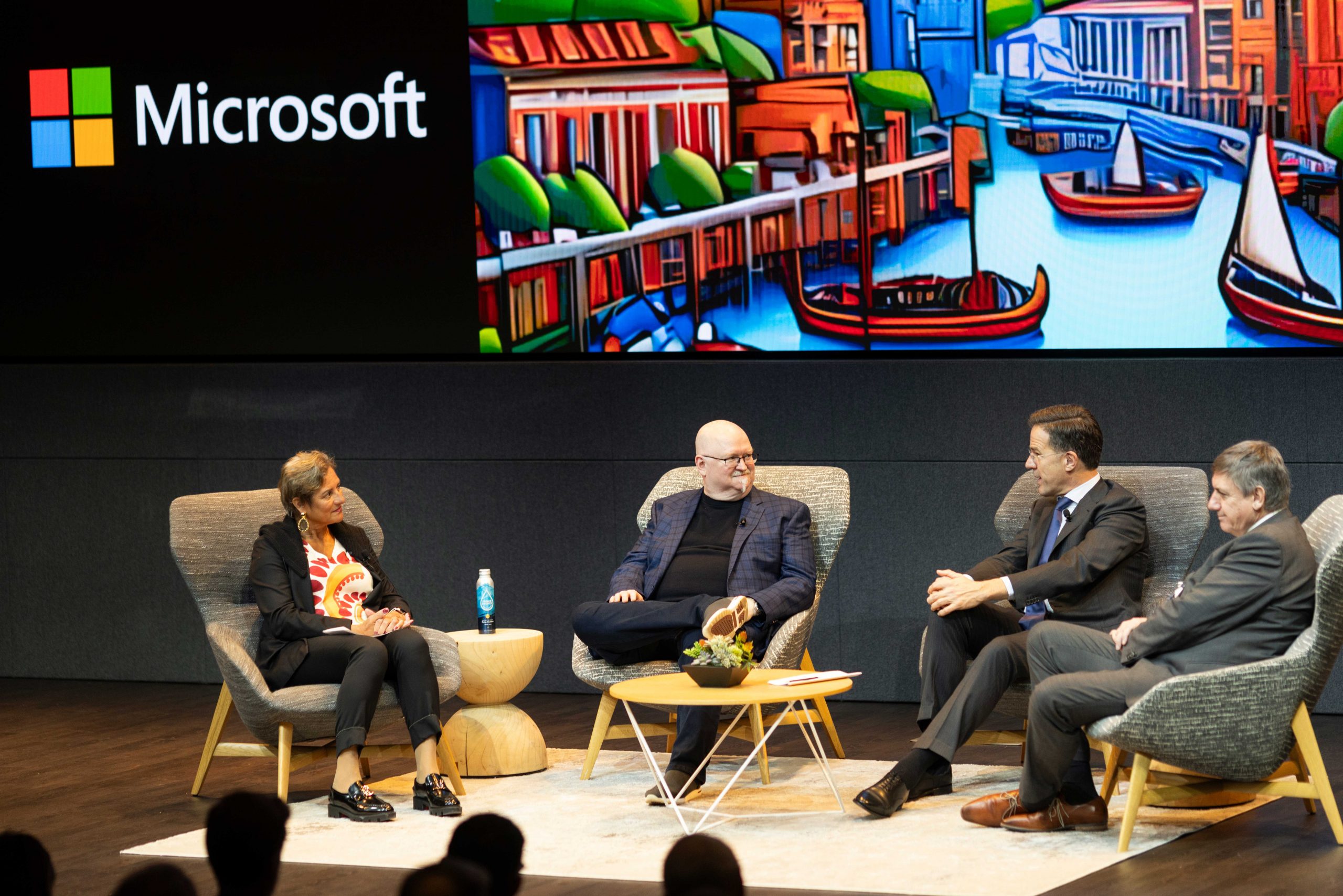
Minister-President Jambon spoke of the role governments can play in balancing people’s desire for more and more applications to facilitate their lives while at the same time maintaining personal privacy. He explained that that was part of the motivation for the Flemish government to create a startup called Athumi, which acts as a trusted party to develop the data economy and provide businesses and consumers with control of their information.
“This is to build confidence in the business of data sharing,” Minister-President Jambon said. He thanked Microsoft for being interested in and partnering on the effort.
The two leaders also spoke with Scott about the challenge of overcoming supply chain disruptions and cultivating reliable, cross-border partnerships. Scott said building and maintaining those connections is even more vital now.
“It’s an important reminder to all of us that anything complex that you’re trying to do, you can’t do without partners,” he said. Following the fireside chat, the two leaders and the rest of the delegation separated into breakout sessions with Microsoft executives, who led in-depth discussions on topics including global semiconductor supply chains, quantum computing, and technology offerings for startups.
Envisioning specialists guided the delegation through the immersive exhibits of Microsoft’s Experience Center—Americas West. They led the leaders through an exhibit on quantum computing and demonstrated how Copilot, Microsoft’s everyday AI companion, can quickly summarize a long email thread for a new coworker and even generate the summary in the form of a poem.
At another exhibit, Prime Minister Rutte amiably agreed to balance an orange ping pong ball on a glass plate and then watched as a robot trained with AI successfully managed the same task. That exhibit demonstrates how AI can be used to train machines in intelligent manufacturing settings.
Though the Experience Center has welcomed visitors from 55 countries since it opened its doors more than a year ago, it was a particularly special occasion to host such high-ranking government officials from the Netherlands and Flanders.
Kevin Scott told Prime Minister Rutte and Minister-President Jambon that it was an honor and a privilege to welcome them at Microsoft’s Silicon Valley Campus. He said that he’s grateful for their partnership at such an “unbelievably exciting moment in the history of technology.”

